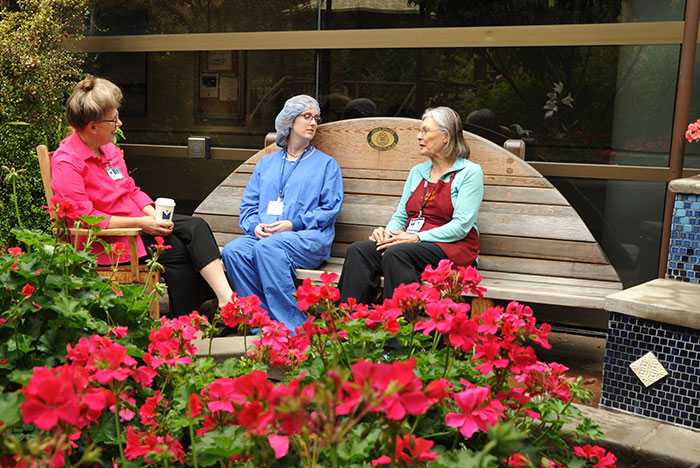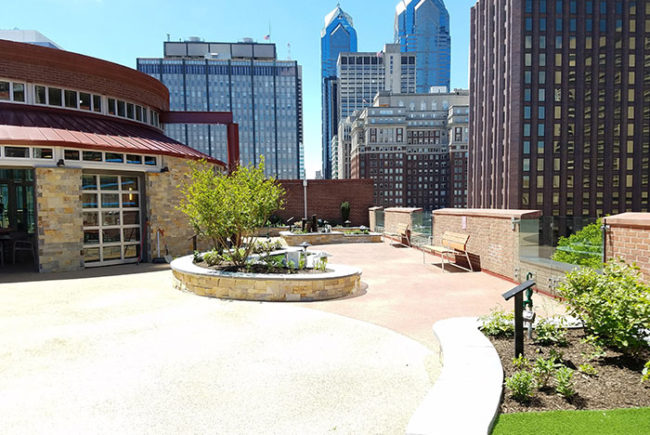
Legacy Health and TKF Foundation have studied the impact of nature on stress levels among ICU nurses.
Legacy Health is committed to taking care of four unique groups: its employees, patients, communities and the world — and in that order. For emergency medicine physician Minot Cleveland, M.D., it was once unusual to him that the patients come second in that list. However, the practicing physician turned medical director of employee health at the Oregon-based health system now sees things differently.
“I’ve come to believe that the order of those things is right,” he says. “We need to take care of our people — our employees, volunteers and medical staff. And if we do that, then we will do a better job of taking care of patients and families.”
In his current role, Cleveland looks for innovative ways to improve health and wellness among Legacy’s 13,000 employees who are spread across six medical campuses, seven hospitals and a number of outpatient and administrative sites. He chairs a systemwide group called the Good Health Council and is tapping an in-house resource to build resiliency and reduce burnout among clinical and nonclinical staff: Legacy’s 12 therapy gardens.
The garden at Legacy Emanuel Medical Center in Portland, Ore., is one of the newest additions to this family of gardens. The space is open to everyone — patients, family members and visitors — and the system strongly encourages staff to reap the garden’s benefits, as well.
“There’s a growing body of scientific literature and studies that show what we know intuitively: that having contact with nature is good for us,” Cleveland says. “It decreases blood pressure and stress, improves sleep and pain control. And I think for our staff and with all the changes in health care that are going on, even though taking care of patients is wonderful thing, it can also drain people. One of the main things we’re finding is that this is a really great way for people to take a break from work, and reduce stress and anxiety.”
The health system doubled down on its intuition and partnered with TKF Foundation to conduct a study on the garden’s impact on intensive care unit nurses. TKF is a nonprofit that supports and promotes creation of green spaces in urban environments. The study tracked the moods, attendance and a variety of health factors of nurses who were working eight-, 10- and 12-hour shifts. The hospital is submitting results of the study for publication.
“Through this study we found that people’s stress decreased, and they were relaxed and better engaged after taking breaks in the garden versus in a break room,” Cleveland explains.
With the study’s promising results, Legacy is even more committed to incorporating healing and therapy gardens as a regular part of its employee wellness programs. The health system in September dedicated a garden at its Legacy Salmon Creek Medical Center in Vancouver, Wash., and is working to refurbish a small park near its Legacy Good Samaritan Medical Center in northwest Portland. Cleveland says the system is even getting requests from administrative facilities to build gardens at those locations, too.
“We are fairly unique in the number of gardens we have, but also in the way we are incorporating and promoting them,” he explains. “In the garden, there’s a deeper healing that takes place when people get out there into a beautiful space.”





